Quality Improvement in Healthcare Certificate

When you go home at the end of the day, do you often reflect and think to yourself “that could have gone better”? Do you find yourself getting frustrated that our healthcare system does not seem to be able to meet the needs of our patients? Do the words “we’ve always done things this way” or “that’s just our policy” trigger primal rage?
There is a better way. There is a way to approach these frustrations and transform them into fuel to catalyze change. Imagine a healthcare system where front-line workers proactively capture problems, systematically analyze them, and methodically and efficiently come to a resolution on their own.

Why doesn’t this amazing healthcare system exist right now? What is missing? The answer is you. We need more leaders like you who have innate curiosity about the work being done and are constantly asking “why?” We need leaders like you who are dissatisfied with “acceptable performance” and are continually trying to understand how we can improve. We need leaders like you who realize that systematic problem solving requires proficiency in both the science of improvement and the art of change management.
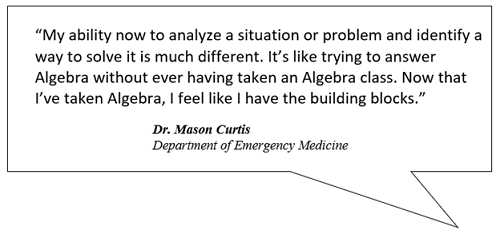
This is where we can help you. At the Centre for Quality, Innovation, and Safety (CQUINS), Schulich Medicine, Western University, we are obsessed with making, supporting, and promoting excellent quality improvement practitioners. The Certificate in Healthcare Quality is our flagship offering, and is the fastest, most direct path to expert status in QI. What makes our certificate unique is its focus on practical details. Not only will you have access to a granular, step-by-step curriculum that will guide you smoothly through your project at your own pace, but you will also have regular one-on-one coaching access to our most experienced quality improvement scholars. Nothing like this exists anywhere else.
If you would like to be among the architects of our healthcare system, let us be your guides. Visit the course website to learn more about the course or contact us for further discussion.
 |
 |
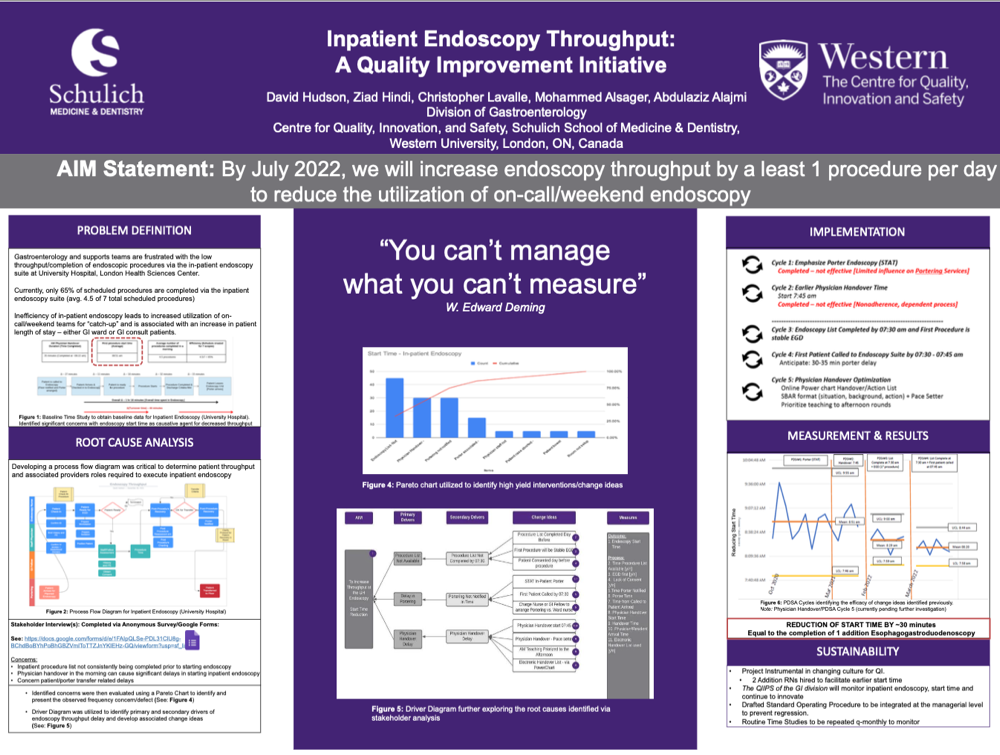 |
Inpatient Endoscopy Throughput: A Quality Improvement Initiative
AIM Statement: By July 2022, we wil increase endoscopy throughput by at least 1 procedure per day to reduce utilization of on-call/weekend endoscopy.
Dr. Dave Hudson
|
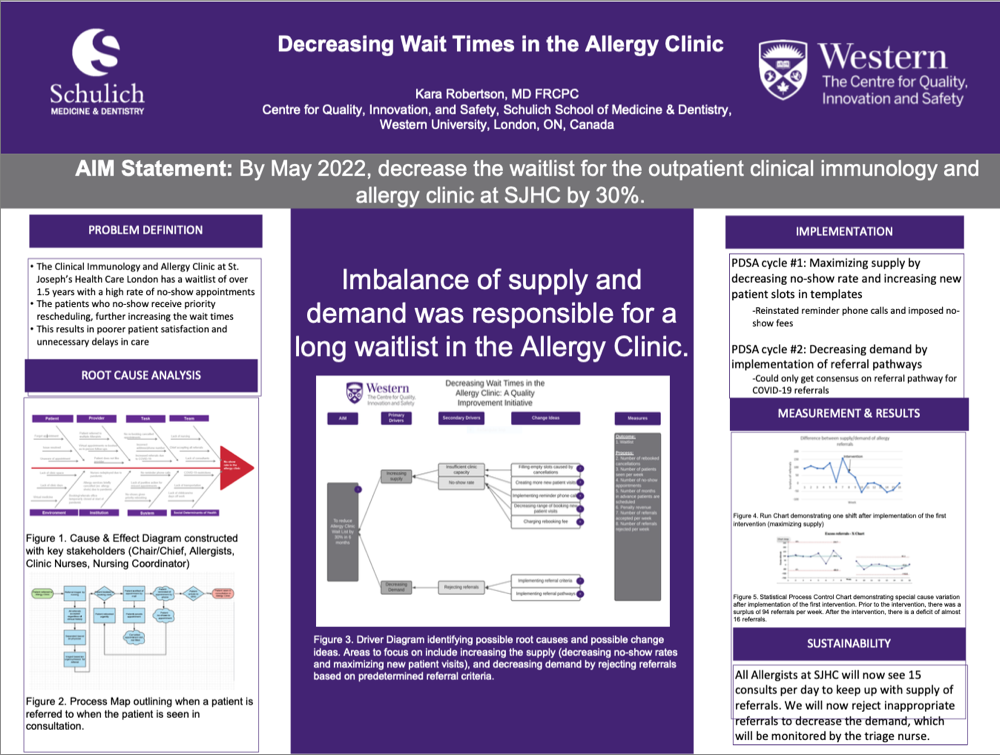 |
Decreasing Wait Times in the Allergy Clinic
AIM Statement: By May 2022, decrease the waitlist for the outpatient clinical immunology and allergy clinic at SJHC by 30%.
Dr. Kara Robertson
|
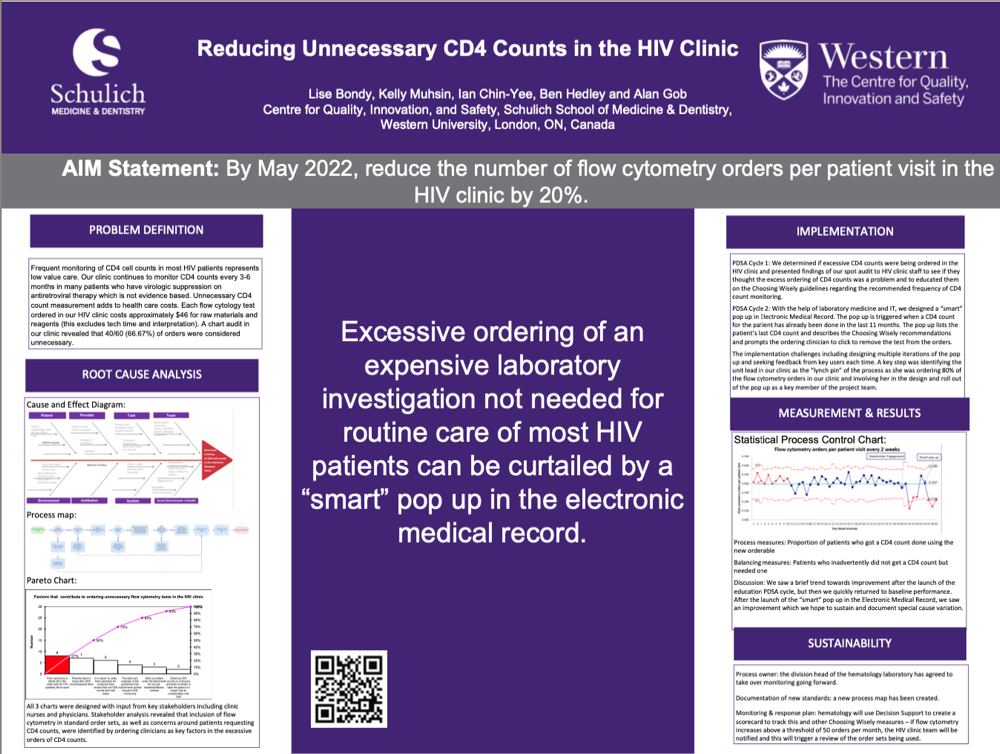 |
Reducing Unnecessary CD4 Counts in the HIV Clinic
AIM Statement: By May 2022, reduce the number of flow cytometry orders per patient visit in the HIV clinic by 20%.
Dr. Lise Bondy
|
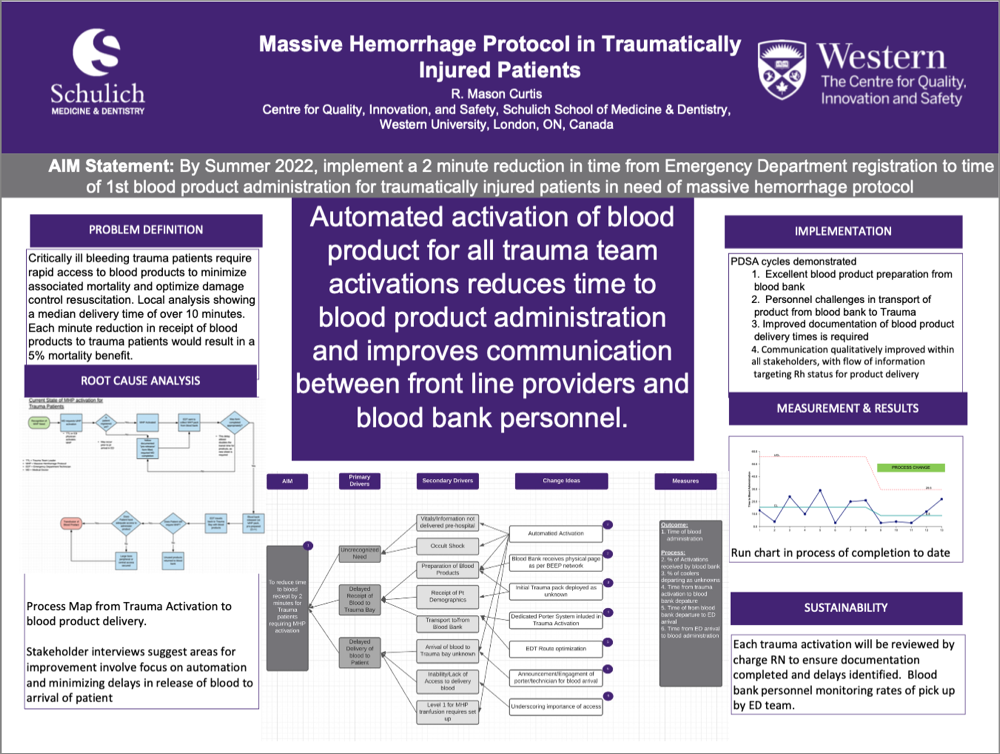 |
Massive Hemorrhage Protocol in Traumatically Injured Patients
AIM Statement: By Summer 2022, implement a 2-minute reduction in time from Emergency Department registration to time of 1st blood product administration for traumatically injured patients in need of massive hemorrhage protocol.
Dr. Mason Curtis
|
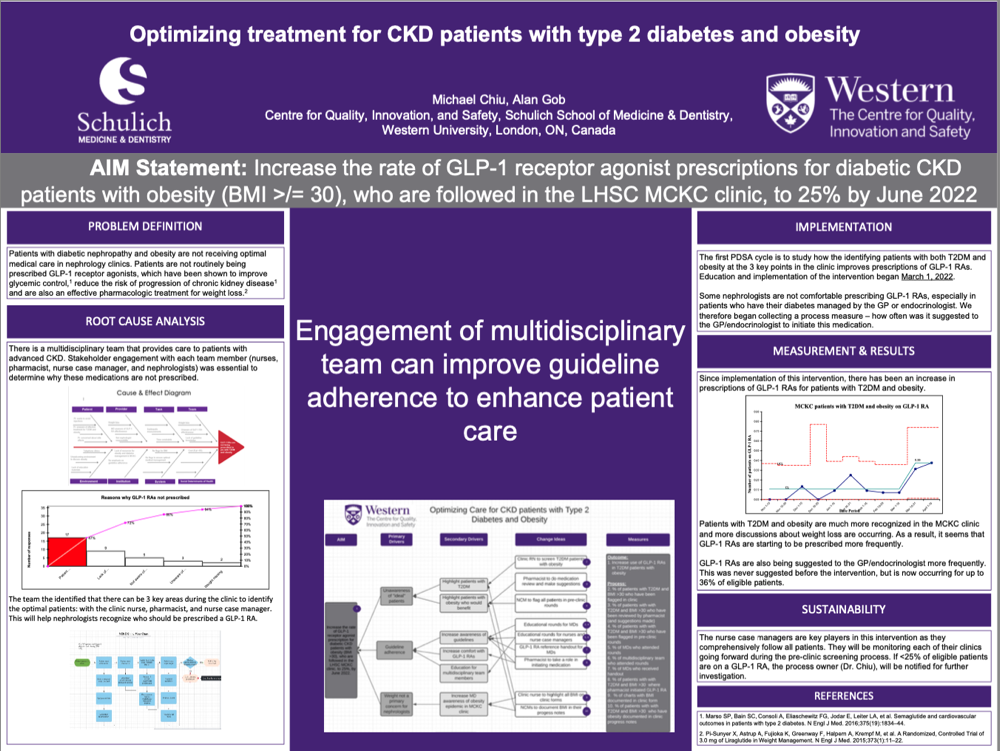 |
Optimizing Treatment for CKD Patients with Type 2 Diabetes and Obesity
AIM Statement: Increase the rate of GLP-1 receptor agonist prescriptions for diabetic CKD patients with obesity (BMI >/= 30), who are followed in the LHSC MCKC clinic, to 25% by June 2022.
Dr. Michael Chiu
|
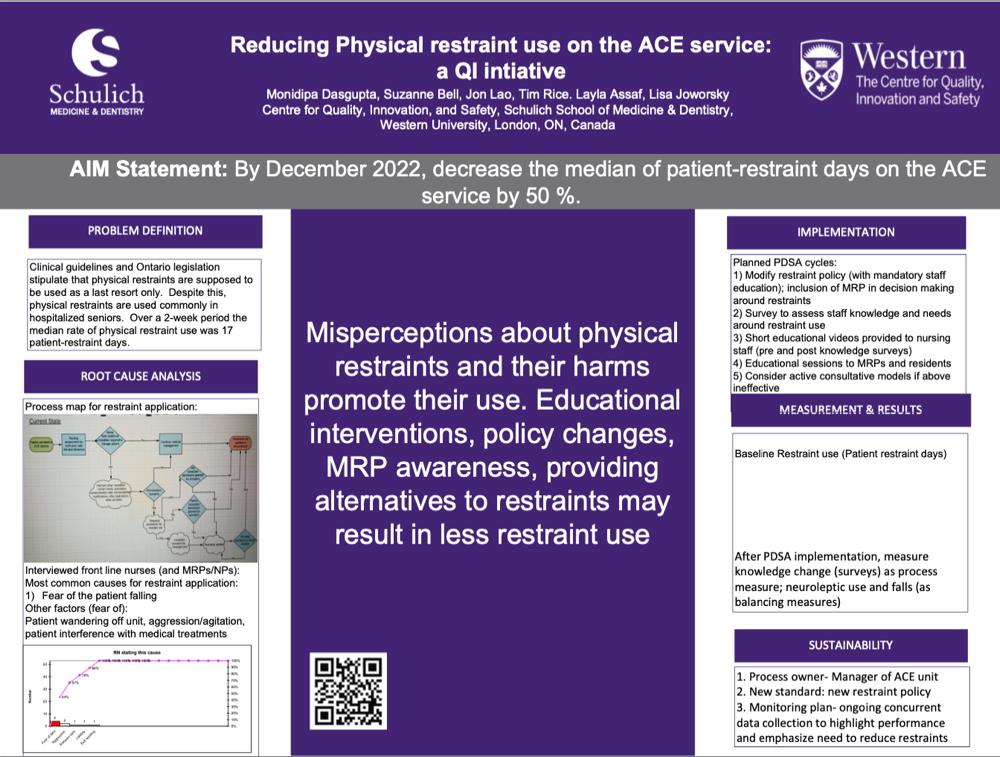 |
Reducing Physical Restraint Use on the ACE Service: A QI Initiative
AIM Statement: By December 2022, decrease the median of patient-restraint days on the ACE service by 50%.
Dr. Monidipa Dasgupta
|
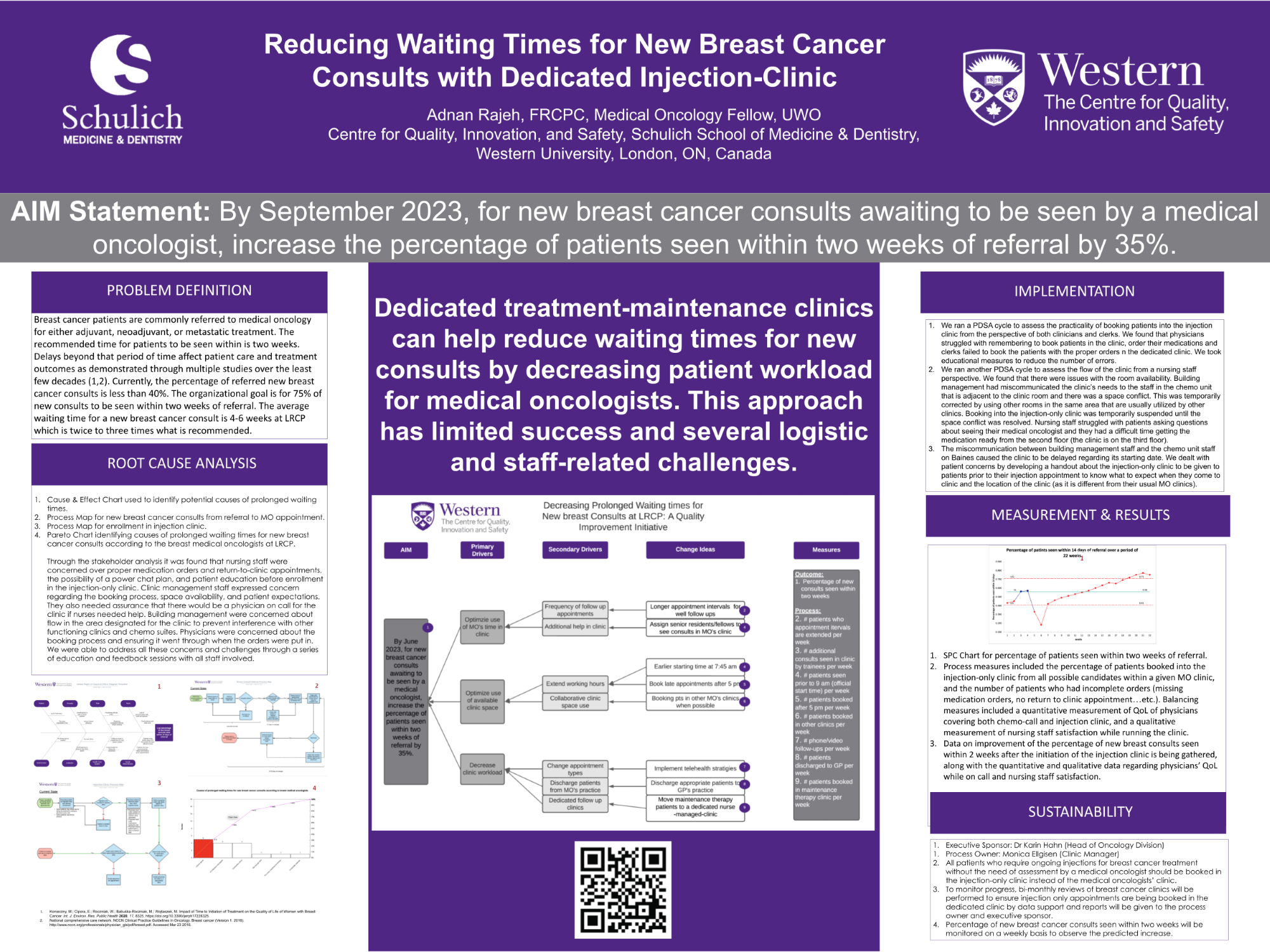 |
Reducing Waiting Times for New Breast Cancer Consults with Dedicated Injection-Clinic
AIM Statement: By September 2023, for new breast cancer consults awaiting to be seen by a medical oncologist, increase the percentage of patients seen within two weeks of referral by 35%.
Dr. Adnan Rajeh
|
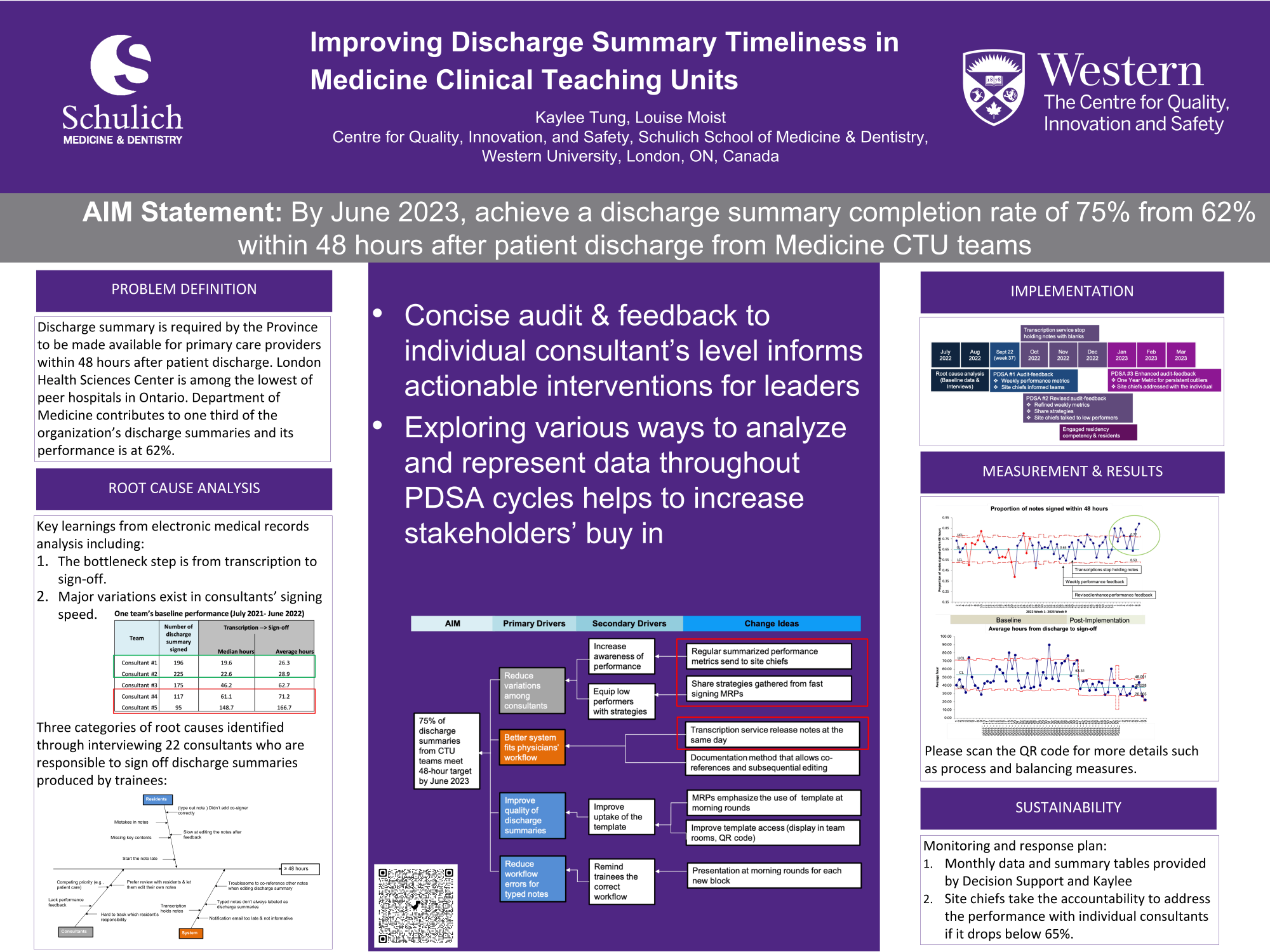 |
Improving Discharge Summary Timeliness in Medicine Clinical Teaching Units
AIM Statement: By June 2023, achieve a discharge summary completion rate of 75% from 62% within 48 hours after patient discharge from Medicine CTU teams.
Kaylee Tung
|
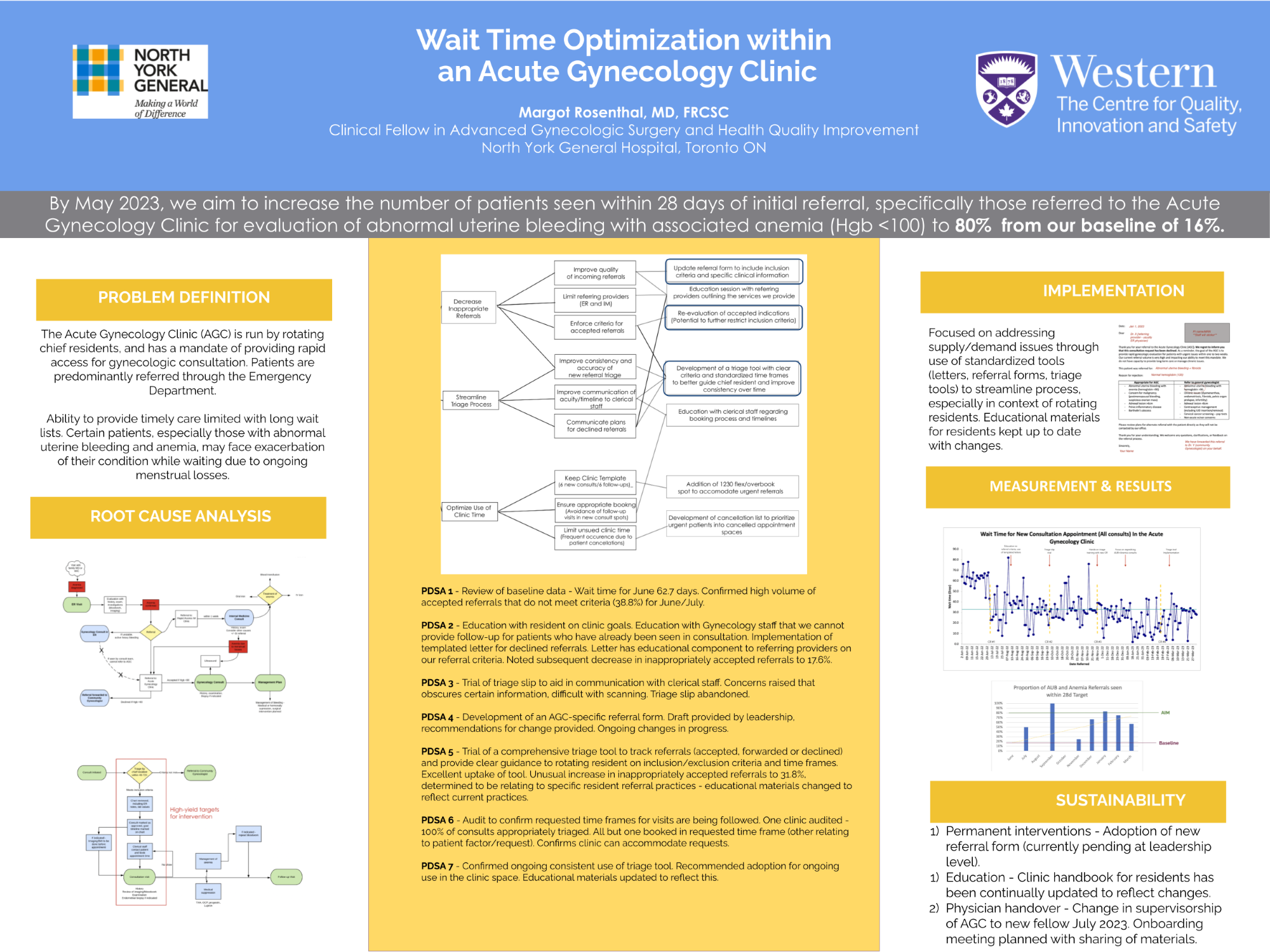 |
Wait Time Optimization within an Acute Gynecology Clinic
AIM Statement: By May 2023, we aim to increase the number of patients seen within 28 days of initial referral, specifically those referred to the Acute Gynecology Clinic for evaluation of abnormal uterine bleeding with associated anemia (Hgb <100) to 80% from our baseline of 16%.
Dr. Margot Rosenthal
|
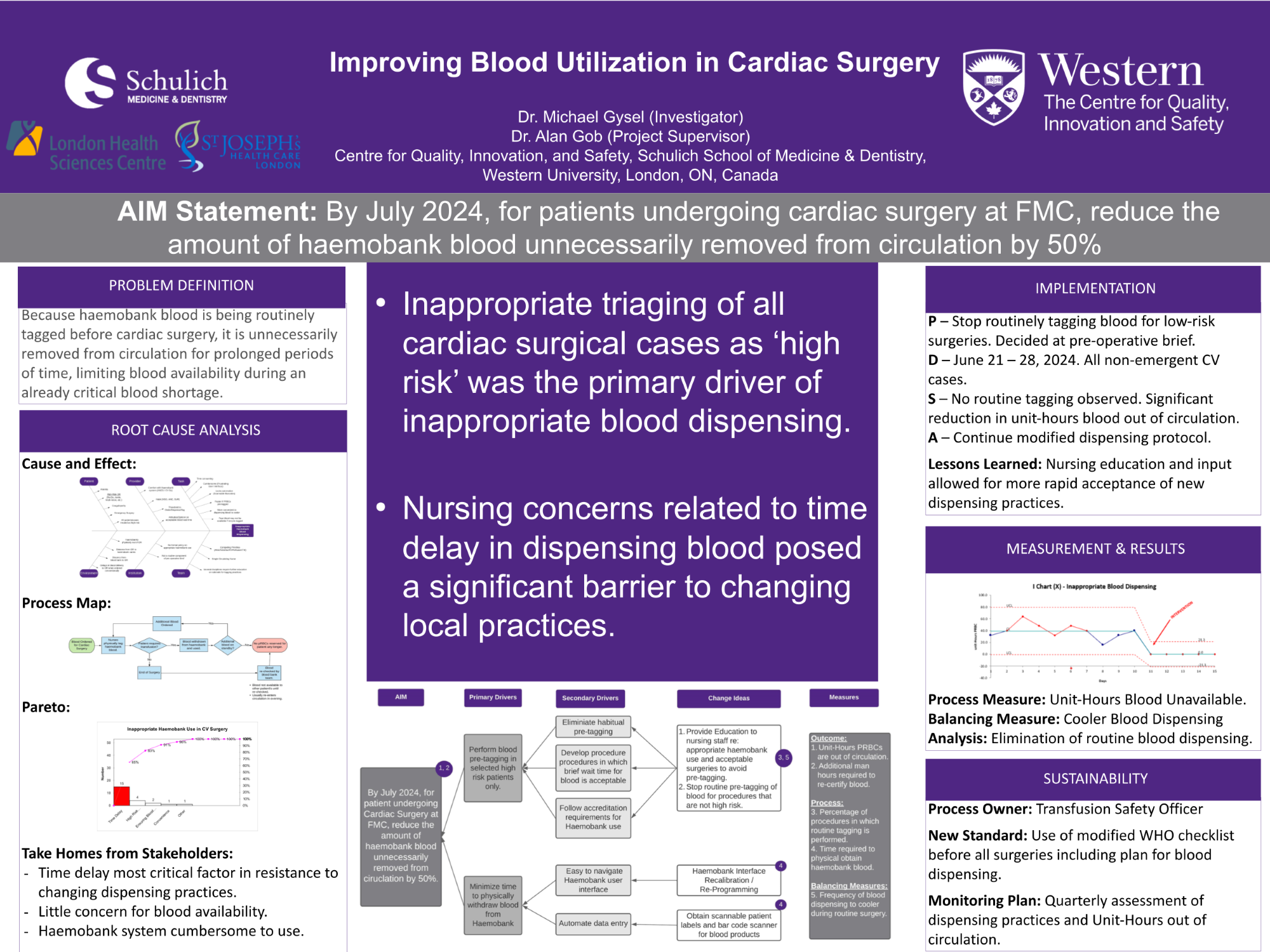 |
Improving Blood Utilization in Cardiac Surgery
AIM Statement: By July 2024, for patients undergoing cardiac surgery at FMC, reduce the amount of haemobank blood unnecessarily removed from circulation by 50%.
Dr. Michael Gysel
|
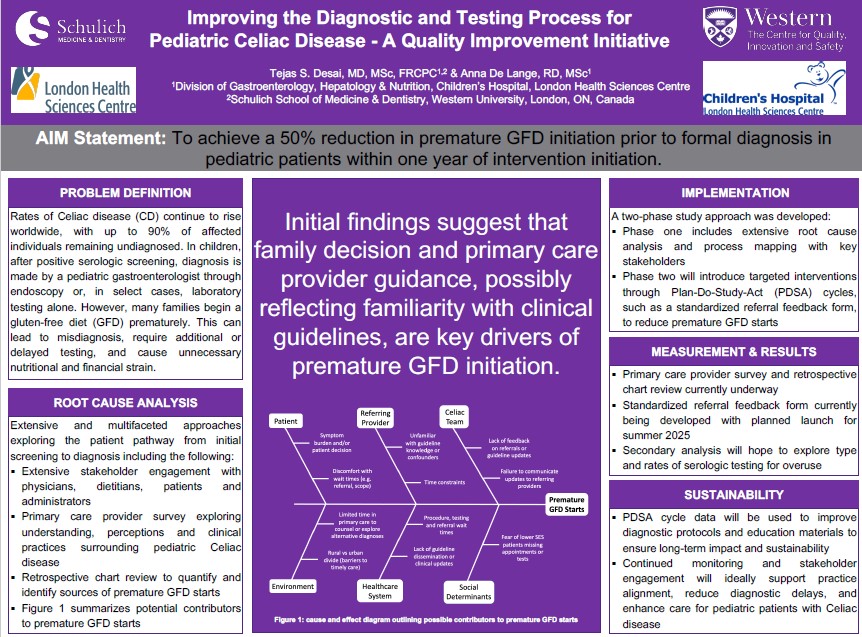 |
Improving the Diagnostic and Testing Process for Pediatric Celiac Disease - A Quality Improvement Initiative
AIM Statement: To achieve a 50% reduction in premature GFD initiation prior to formal diagnosis in pediatric patients within one year of intervention initiation.
Dr. Tejas Desai
|
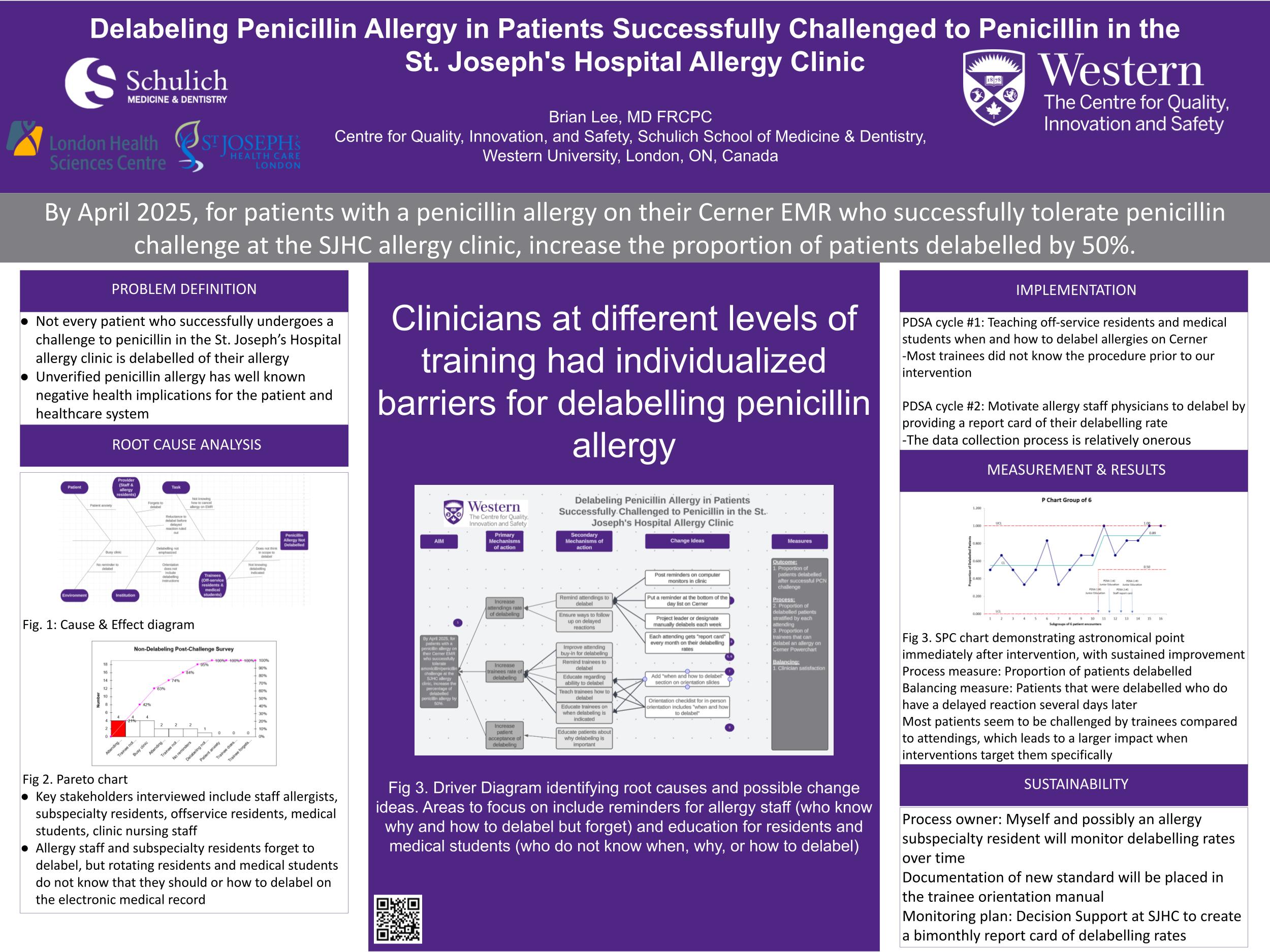 |
Delabeling Penicillin Allergy in Patients Successfully Challenged to Penicillin in the St. Joseph's Hospital Allergy Clinic
AIM Statement: By April 2025, for patients with a penicillin allergy on their Cerner EMR who successfully tolerate penicillin challenge at the SJHC allergy clinic, increase the proportion of patients delabelled by 50%.
Dr. Brian Lee
|
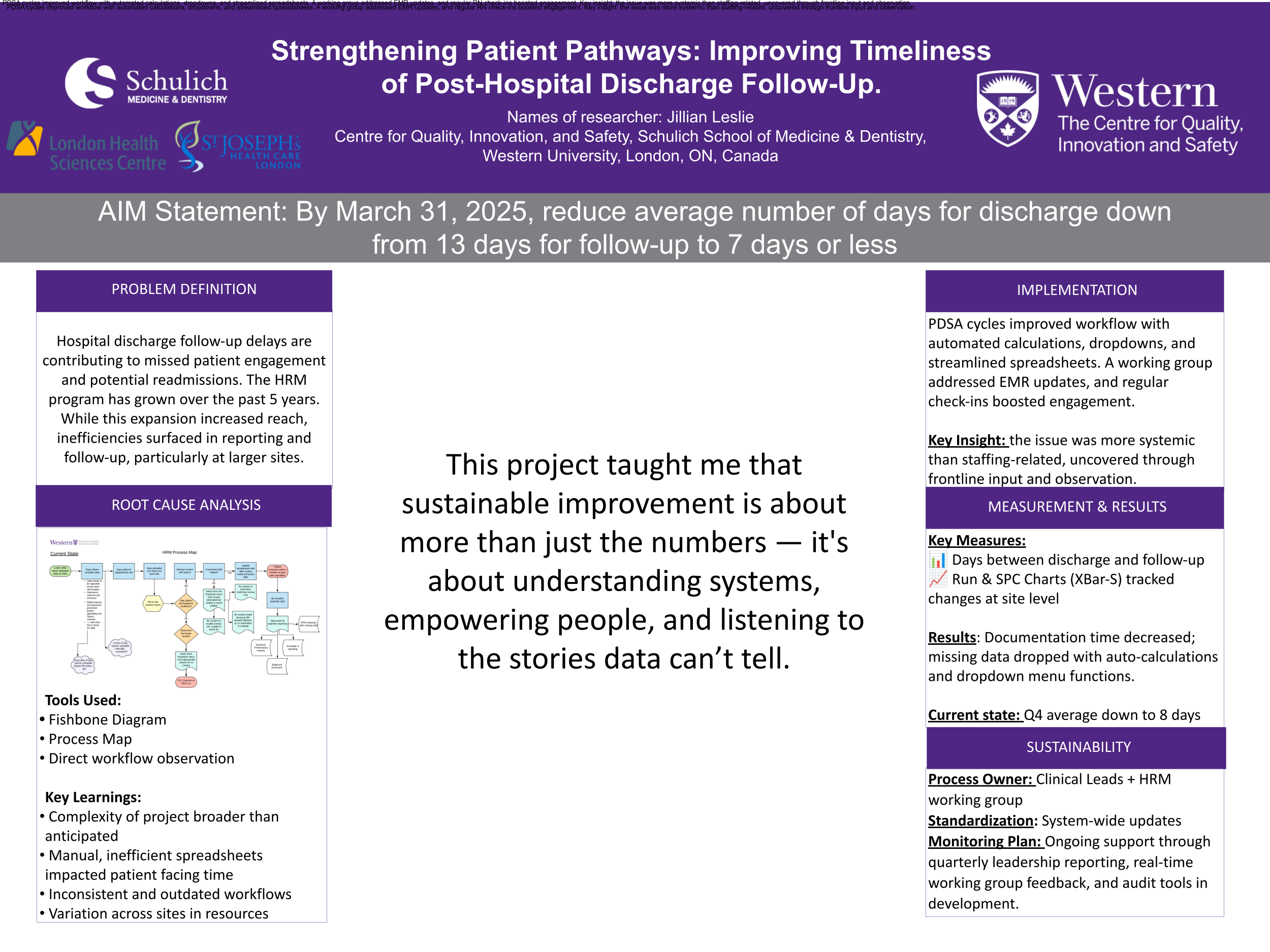 |
Strengthening Patient Pathways: Improving Timeliness of Post Hospital Discharge Follow-Up
AIM Statement: By March 31, 2025, reduce average number of days for discharge down from 13 days for follow-up to 7 days or less.
Jillian Leslie
|
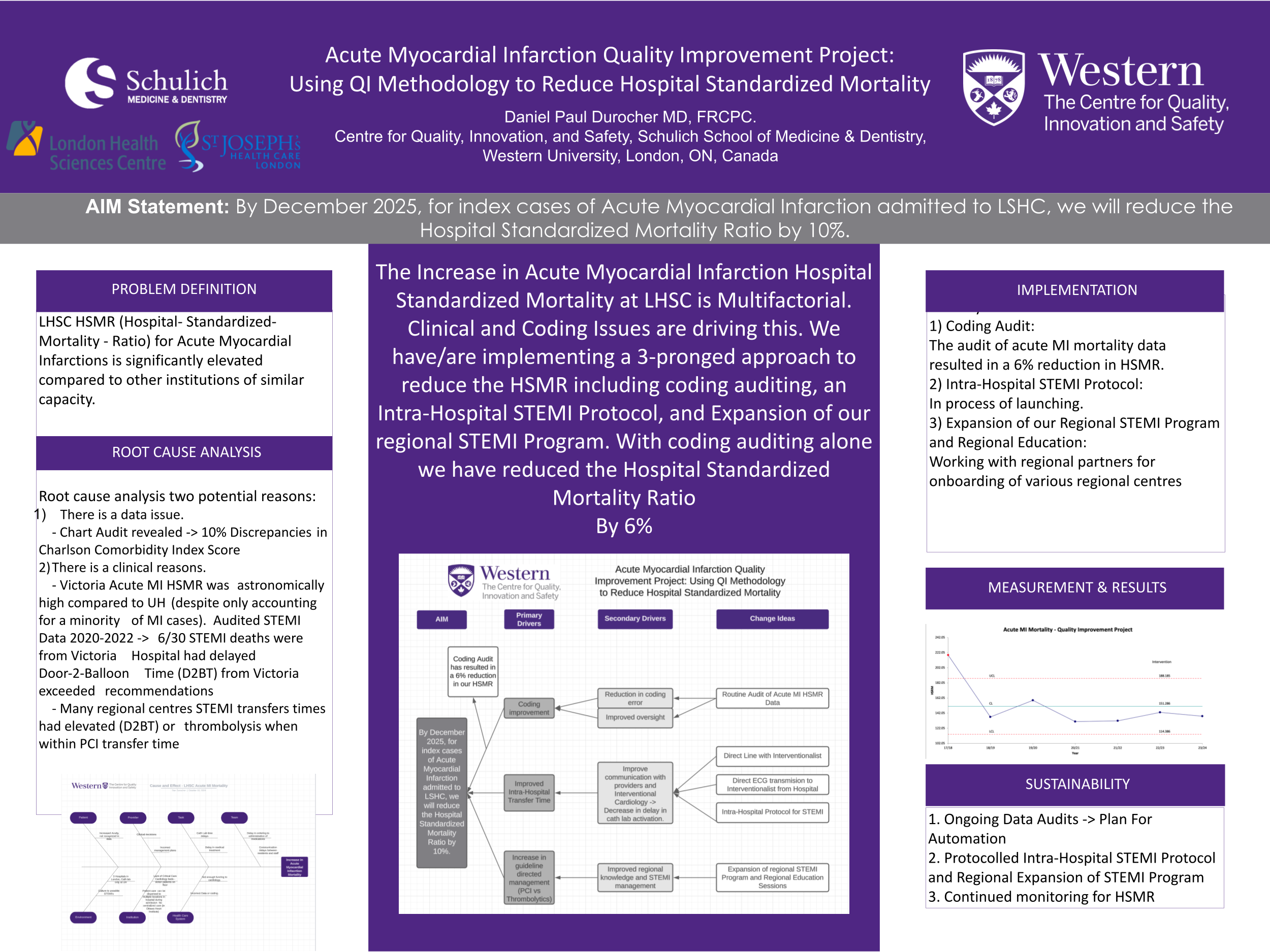 |
Acute Myocardial Infarction Quality Improvement Project: Using QI Methodology to Reduce Hospital Standardized Mortality
AIM Statement: By December 2025, for index cases of Acute Myocardial Infarction admitted to LSHC, we will reduce the Hospital Standardized Mortality Ratio by 10%.
Dr. Daniel Durocher
|
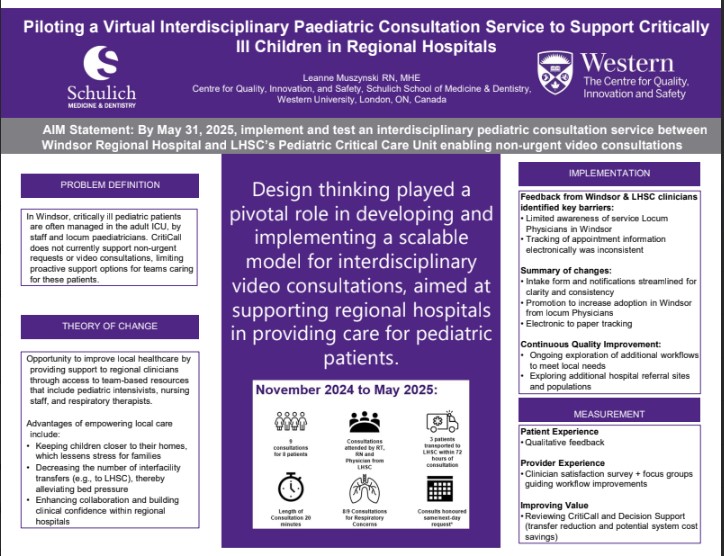 |
Piloting a Virtual Interdisciplinary Paediatric Consultation Service to Support Critically Ill Children in Regional Hospitals
AIM Statement: By May 31, 2025, implement and test an interdisciplinary pediatric consultation service between Windsor Regional Hospital and LHSC’s Pediatric Critical Care Unit enabling non-urgent video consultations.
Leanne Muszynski
|




























